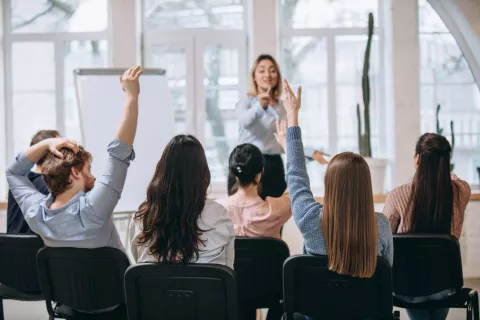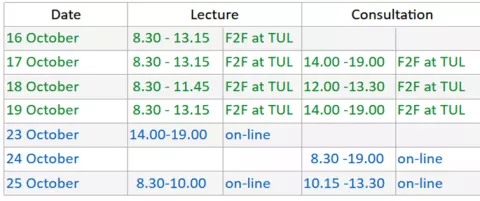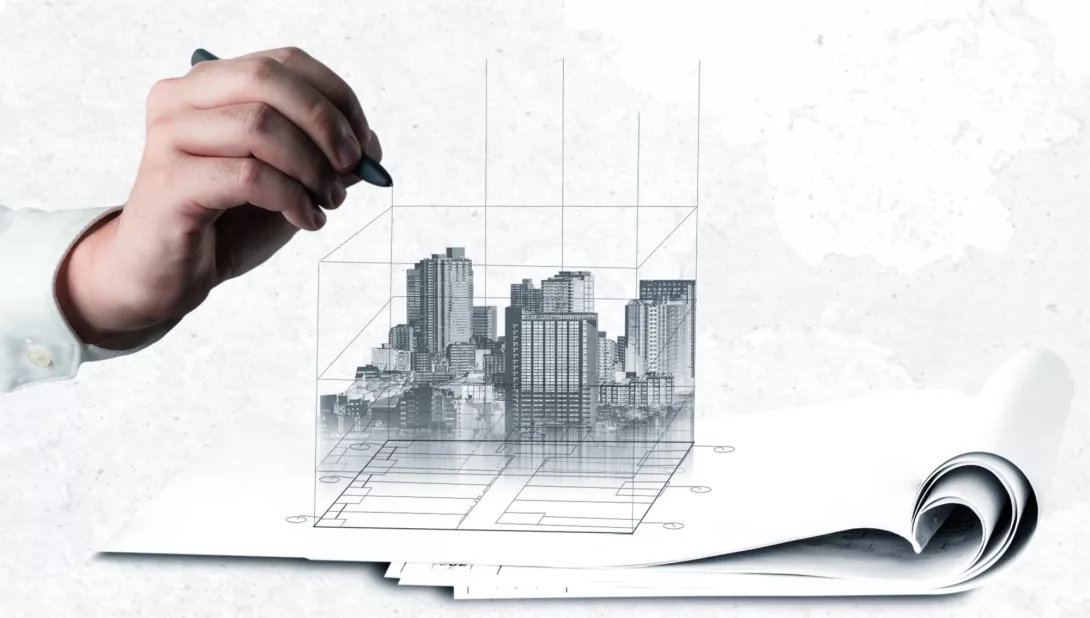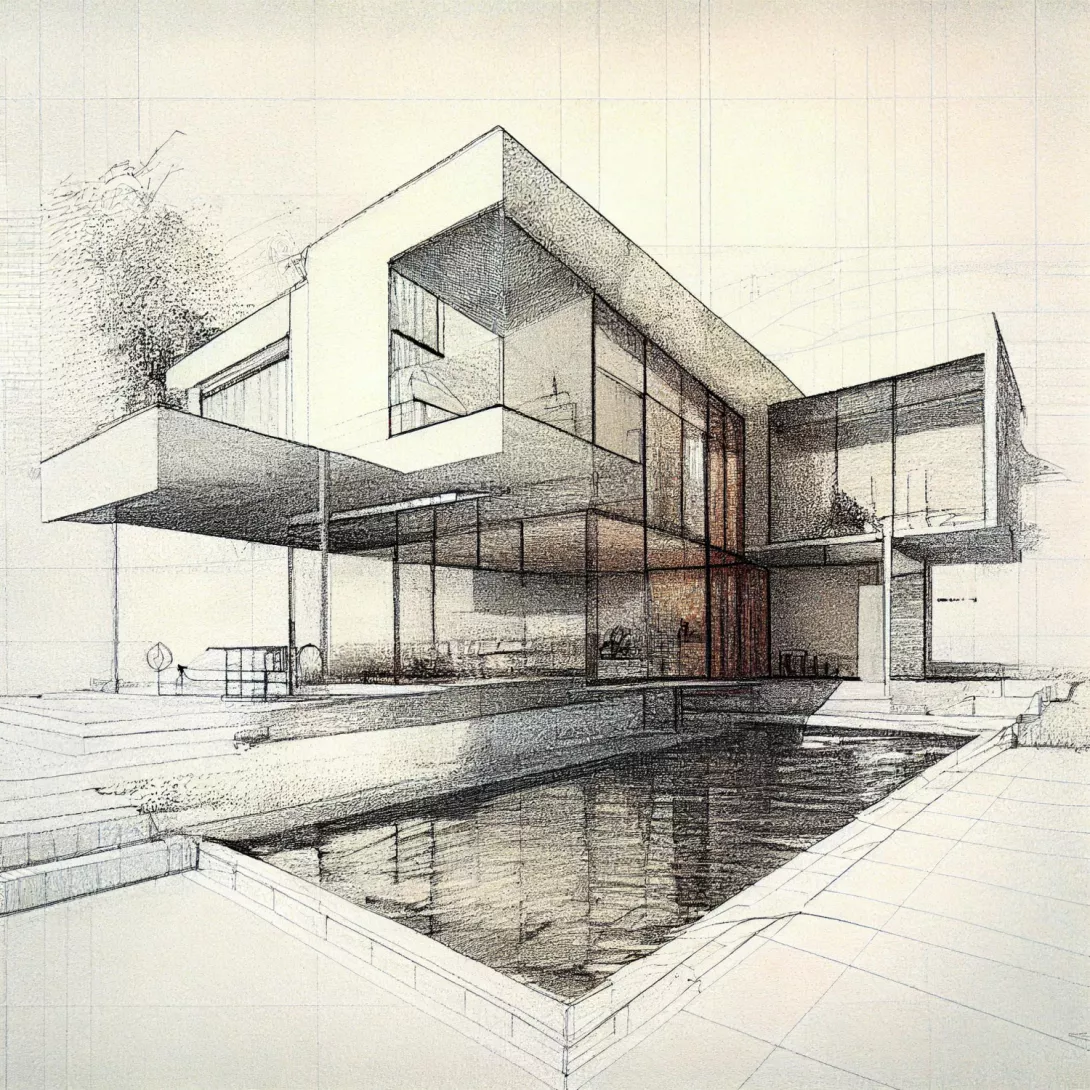


Drodzy Doktoranci,
mamy przyjemność przedstawić Państwu wykłady Profesorów Wizytujących w ramach projektu STER NAWA.
Wykłady odbywają się w ramach poszczególnych dyscyplin i są organizowane dla wszystkich doktorantów (wszystkich lat kształcenia).
Poniżej znajduje się opisy wykładów oferowanych przez każdą dyscyplinę - 30 godz.
Gorąco zachęcamy do wzięcia w nich udziału.

Tu znajduje się ankieta - jeśli jesteś zainteresowany udziałem w wykładzie, prosimy o jak najszybsze jej wypełnienie.
Visiting Professor STER NAWA Project - prof. Fabio Antoldi
Title of the lecture: "Strategic Management: Principles and Tools"
Lecturer:
Visiting Professor: Fabio Antoldi, Università Cattolica del Sacro Cuore, Milan
Detailed description of the lecture:
Course content - The main topics of the course are:
1. The strategy: introduction to the concept of strategy and basic elements of the model adopted.
2. Tools of strategic analysis: analysis of the competitive forces of general and industry environment.
3. The analysis of competitive advantage: discussion about the nature and the sources of competitive advantage.
4. Formulating and implementing business strategy in different industries: industry evolution and strategic change, technology-based industries and the management of innovation.
5. Innovation and Strategy: how innovators can take advantage in the markets and defend it from imitators.
6. The strategy-making process: how managers and entrepreneurs can design and plan the firm strategy.
Course aims - The course aims at introducing the principal concepts and techniques of strategic management. Strategy is a quest for superior long-term performance, and there are two major inputs into strategic decisions: analysis of the external environment and analysis of the internal environment of the firm. The course focuses on the analysis, evaluation and formulation of business strategies, and has two basic objectives: (1) to provide PhD candidates with an understanding of models and theories about corporate strategy; (2) to develop the student’s capacity to analyse and evaluate competitive strategies, from the standpoint of managers, advisors or analysts.
Learning outcomes - The purpose of the course is to develop participants’ ability to contribute to strategic management processes of firms, seen as dynamic and complex systems. Focus is on the need to adopt instruments of strategic analysis aimed at simultaneously “mastering” the present and building the future. The approach to business strategy is dynamic: successful strategy design and implementation require a continuous and systematic understanding of the firm’s external environment and its internal resources and capabilities. They also require an integrated view of the firm that spans functional areas such as operations, marketing and finance.
At the end of the course, the PhD students should be capable of: (i) analyzing the competitive strategies of businesses and (ii) identifying the key factors for constructing a competitive advantage in the markets.
Type of meeting (in-person/online) Stationary lectures
Schedule of meetings at the TUL:
Monday - 26/6/2023 – 8h30–12h (1.12 – building B17)
Tuesday - 27/6/2023 – 8h30–12h (1.12 – building B17)
Wednesday - 28/6/2023 – 8h30–12h (1.12 – building B17)
Thursday - 29/6/2023 – 8h30–12h (1.12 – building B17)
Friday 30/6/2023 – 8h30–12h (1.12 – building B17)
Additional options:
After the lectures, there will be an opportunity to take part in individual consultations for IDS doctoral candidates
or to sign up for a for such consultations to be conducted in a later date.

Tu znajduje się ankieta - jeśli jesteś zainteresowany udziałem w wykładzie, prosimy o jak najszybsze jej wypełnienie.
Visiting Professor: Miroslav Mrlik
STER NAWA Project - lecture registration
Title of the lecture: "Smart Materials"
Lecturer: Miroslav Mrlik, Tomas Bata University in Zlín, the Czech Republic
Detailed description of the lecture:
This course is focused on the materials those physical properties can be tailored using external stimuli. Such stimulus is usually electric or magnetic field, temperature, pH and finally light. Materials possessing this features are mainly applied as an actuators (changing their shape upon external stimulus) in case of electric, magnetic and light or materials used for controlled release in case of thermally and pH stimulated materials.
Subject is divided to several main topics:
1. Electrorheological fluids
2. Magnetorheological suspensions and elastomers
3. Photo-actuated materials
4. Materials for mechanical energy harvesting
5. Thermo-responsive polymers
6. pH-responsive materials
7. Multi stimuli-responsive materials
8. Phase change materials - thermal energy storage
9. Stimuli-responsive hydrogel scaffolds
Type of meeting (in-person/online) Stationary lectures
Schedule of meetings at the TUL:
12th June, 2023, 8.15 -13.00, CA3 Alchemuim
13th June, 2023, 10.00 -17.00, G11 - buiding A8
14th June, 2023, 10.00 -15.00, G11 - buiding A8
Additional options:
After the lectures, there will be an opportunity to take part in individual consultations for IDS doctoral candidates or to sign up for a for such consultations to be conducted in a later date.

LECTURE REGISTRATION
STER NAWA Project – Visiting Professor lectures
Lecture theme: Title of the lecture: "Smart Materials" - part II
Lecturer:
Visiting Professor, Tomas Bata University in Zlín, the Czech Republic
Detailed description of the lecture:
This course is focused on the materials those physical properties can be tailored using external stimuli. Such stimulus is usually electric or magnetic field, temperature, pH and finally light. Materials possessing this features are mainly applied as an actuators (changing their shape upon external stimulus) in case of electric, magnetic and light or materials used for controlled release in case of thermally and pH stimulated materials.
Subject is divided to several main topics:
1. Electrorheological fluids
2. Magnetorheological suspensions and elastomers
3. Photo-actuated materials
4. Materials for mechanical energy harvesting
5. Thermo-responsive polymers
6. pH-responsive materials
7. Multi stimuli-responsive materials
8. Phase change materials - thermal energy storage
9. Stimuli-responsive hydrogel scaffolds
Type of meeting (in-person/online) Stationary lectures
Schedule of meetings at the TUL:
September 18, 2023: from 10 to 17h, Room A6, Alchemium Building
September 19, 2023: from 10 to 16h, Room A6 Alchemium Building
September 20, 2023: from 10 to 16h, Room G11, A8
September 21, 2023: from 10 to 16h, Room G11, A8
Additional options:
After the lectures, there will be an opportunity to take part in individual consultations for IDS doctoral candidates or to sign up for a for such consultations to be conducted in a later date.

LECTURE REGISTRATION
STER NAWA Project – Visiting Professor lectures
Lecture theme: Bionanotechnology and Bionanosensors: State-of-the-Art and Future Challenges
Visiting professor: Ricardo Franco, NOVA University of Lisbon
Description of the lectures:
This course is intended to raise awareness towards the increasing relevance of nanotechnology, with particular emphasis on nanotechnology in biomedical applications. It is intended to stimulate the students’ understanding of concepts and underlying mechanisms of nanotechnology applications in biodiagnostics and construction of biosensors, within a broader field of developments in clinical diagnostics and biomedicine research.
Mode of delivery:
F2F at TUL(lectures and consultations)and on-line
Schedule:
16-19.10.2023 – lectureswill take placeon campus A (details will be forwarded to students after they registration on MS Forms)
23-26.10.2023 - online meetings via MS Teams.
Recommended readings/prerequisites:
“Bionanotechnology”, D.S. Goodsell, 2004, Wiley-Liss, Hoboken, NJ, USA;
Previous knowledge of the basics of nanotechnology is recommended.


Tu znajduje się ankieta - jeśli jesteś zainteresowany udziałem w wykładzie, prosimy o jak najszybsze jej wypełnienie.
Lecturer: Vladimír Šlapeta
Detailed description of the lecture:
1st Block
CZECH ARCHITECTURE OF 20TH CENTURY
Survey of history of Czech architecture from Jugendstil and Cubism to Interwar Functionalism and to difficult time after WWII till the Velvet Revolution 1989
2nd Block
HANS SCHAROUN AND GERMAN ARCHITECTURE OF 20TH CENTURY
Survey of history of German Architectute from the Industrial Revolution of the „Gruenderzeit“ to Jugendstil and the „Neue Sachlichkeit“ of the Weimar Republic to the Nazi-architecture and the boom of the „Wirtschaftswunder“ of 70th and 70th till Postmodern movement and various tendencies at the end of Millenium
3rd Block
ALVAR AALTO AND FINNISH ARCHITECTURE OF 20TH CENTURY
Survey of history of Finnish architecture from the time of National Romanticism around 1000 through the Independence 1917 and blow up of Finnish architecture during 20tieth and 30tieth to the Helsinki Olympics 1952 and Tapiola Housing Estate to the culmination of Alvar Aalto work during 60ieth till the aftermath of the younger generation at the end of the milénium
4th Block
JOŽE PLEČNIK AND ARCHITECTURE IN SLOVENIA
The nothern part of the former Yugoslavia , Slovenia has unergone remarkable development since 1900, influenced by domestic traditions and the neighboring cultures of Venice and Vienna. Otto Wagner´s pupil Jože Plečnik was a leading personality , who transformed the urban form of the center of Ljubljana and whose influence reverbates in the work and debate of the current generation.
ADOLF LOOS AND VIENNA
5th Block
SELECTED CHAPTERS ON ARCHITECTURE IN AMERICA
In several lectures , the great personalities of architecture in the United States /F.L.Wright, Mies, Louis Kahn , Richard Meier, Steven Holl/, Canada and Brasilia /Oscar Niemeyer/ will be presented and discussed
SEMINAR ABOUT NEW ARCHITECTURE IN LODZ – with visits of important examples of contemporary architecture and Prof. Stanislawski´s collection of modern art in Lodz
Type of meeting (in-person/online) Stationary lectures
Schedule of meetings at the TUL:
Lecture: 10.07.2023; 11.07.2023; 12.07.2023; 13.07.2023; 14.07.2023
9.00 – 12.00
12.30 – 14.00
Consultation: 10.07.2023; 11.07.2023; 12.07.2023; 13.07.2023
14.30 – 16.00
16.30 – 18.30
19.00 – 21.00
Consultation: 14.07.2023
14.30 – 16.00
Building B-7
Sala 202/203
Additional options:
After the lectures, there will be an opportunity to take part in individual consultations for IDS doctoral candidates or to sign up for a for such consultations to be conducted in a later date.

LECTURE REGISTRATION
STER NAWA Project – Visiting Professor lectures
Lecture theme: Title of the lecture:
"Reduce/Reuse/Recycle. Architecture as Resource 3RArchictecture_B16/Lodz”
Lecturer:
Visiting Professor: Piotr Kuroczyński, Mainz University
Detailed description of the lecture:
The lectures deal with the appropriation of the concept Reduce/Reuse/Recycle, which originates from the circular economy, to architecture. The historical stock is treated from the point of view of cultural heritage, preservation of historical monuments, the careful use of resources and the defined climate goals. Students will gain insights into the digital transformation in the building industry, the use of new technologies for the recording and documentation of existing buildings, and a resource-conserving approach to the development and preservation of cultural heritage. The topic is taught in a practice-oriented way on a historical object, the B16 building of the Technical University of Lodz. Objectives: Raising awareness about the development of the historical assets using innovative planning and development methods and tools. Introduction to the topic of a new culture of transformation in view of the Davos Declaration Towards a high-quality Baukultur for Europe and the EU climate targets 2030/2050.
Type of meeting (in-person/online) Stationary lectures at Department of architecture and urban planning
Schedule of meetings at the TUL:
October 18, 2023 – 8.00-13.45 lecture, 15.15-20.15 – consultation (individual enrollment)
October 19, 2023 – 8.00-12.45 lecture, 14.00-20.30 – consultation (individual enrollment)
October 20, 2023 – 8.00-12.45 lecture, 14.00-20.30 – consultation (individual enrollment)
October 21, 2023 – 8.00-12.45 lecture, 14.00-20.30 – consultation (individual enrollment)
October 22, 2023 – 8.00-12.00 lecture.
Additional options:
After the lectures, there will be an opportunity to take part in individual consultations for IDS doctoral candidates (individual enrollment).

LECTURE REGISTRATION
STER NAWA Project – Visiting Professor lectures
Lecture theme: Title of the lecture:
"Phenomenology of the human body, themes and developments of form”
Lecturer:
Visiting Professor Pietro di Terlizzi, Accademia di Belle Arte di Foggia
Detailed description of the lecture:
Lectures are focusing on the matter of human body and its connection to the surroundings and architecture. Course starts with the basis of anatomy and human proportion. Then it focuses on human body as the source of inspiration for artists and architects. Last part presents how ancient and modern architects use human proportions in their projects.
Type of meeting (in-person) Stationary lectures at Department of architecture and urban planning
Schedule of meetings at the TUL:
November 6, 2023 – 8.00-13.30 lecture, 14.30-21.00 – consultation (individual enrollment)
November 7, 2023 – 8.00-13.30 lecture, 14.30-21.00 – consultation (individual enrollment)
November 8, 2023 – 8.00-13.30 lecture, 14.30-21.00 – consultation (individual enrollment)
November 9, 2023 – 8.00-16.00 lecture, 16.15-21.00 – consultation (individual enrollment)
Additional options:
After the lectures, there will be an opportunity to take part in individual consultations for IDS doctoral candidates (individual enrollment).

LECTURE REGISTRATION
STER NAWA Project – Visiting Professor lectures
Lecture theme: Title of the lecture:
" Architectures of Modernity: the history of transformations and mechanisms of operation”
Lecturer:
Visiting Professor: Irina Seits, Södertörn University
Detailed description of the lecture:
This course aims to introduce and analyse the origins of modernist architecture in historical perspective by analysing social, political, ideological, and aesthetical processes that caused transformations within architectural space production over the times and regions with the focus on the architecture of the twentieth century in Western and Eastern Europe. The course consists of a series of lectures that engage with several themes on the aesthetics, politics, and ideology of modernist architecture. Among them: the origins of the public spaces and the history of their transformation; the history of modernist urban and architectural utopias and their role in architectural production; the architectural, artistic, and literary heritage of the European modernism through the lenses of the modernist concept of ‘life-building’, the myths and mythologisation of Avant-garde aesthetics and its recycling in contemporary cultural and architectural spaces.
The lectures:
1. Urban Space as a Public Medium: history of transformations and mechanisms of operation
2. Alienation and Exile: the hallmarks of modernity
3. From a Garden city to a red-village and from Crystal Palace to a Shopping mall: How utopian dreams transform into dystopian practices.
4. Architectures of Life-Building in Europe: modernist methods for mass-housing production in the twentieth century.
5. An avant-garde future that never was fulfilled
Type of meeting (in-person/online) Stationary at Department of architecture and urban planning and Online meetings
Schedule of meetings:
November 18, 2023 – online meeting, 8-11 lecture
November 23, 2023 – online meeting, 8-11 lecture
November 27, 2023 – stationary, 8-12.45 lecture, 13.30-21 – consultation (individual enrollment)
November 28, 2023 – stationary, 8-12.00 lecture, 12.45-21 – consultation (individual enrollment)
November 29, 2023 – stationary, 8-12.00 lecture, 12.45-21 – consultation (individual enrollment)
November 30, 2023 – stationary, 8-12.45 lecture.
Additional options:
After the lectures, there will be an opportunity to take part in individual consultations for IDS doctoral candidates (individual enrollment).

STER NAWA Project – Visiting Professor lectures
Lecture theme: SOLUTIONS OF FUNCTIONAL EQUATIONS WITH AND WITHOUT SPECTRAL METHODS
Visiting professor: Eszter Novak-Gselmann, University of Debrecen, Hungary
Description of the lectures:
The aim of the course is to cover the most important concepts, notions and results of the theory of functional equations, spectral analysis and synthesis; present the methods of these fields and their application to the questions that are still open.
Detailed list of topics
I. Basics of the theory of functional equations
(a) Additive functions
(b) Homogeneity fields
(c) Additive functions on product spaces
(d) Additive functions on R and on C
(e) Derivations
(f) Extensions of derivations
(g) Automorphisms of R and of C
(h) Multi-additive functions on semigroups
(i) Generalized polynomials on semigroups
(j) Generalized exponential polynomials on semigroups
(k) Normal polynomials on semigroups
(l) Normal exponential polynomials on semigroups
II. Fourier-transformation and mean periodic functions
(a) The Fourier-transform of exponential polynomials
(b) Mean periodic functions
III. Convolution-type functional equations
(a) Functional equations for (normal) polynomials
(b) Levi-Civita functional equation ´
(c) Elements of representation theory
(d) D’Alembert type equations
(e) Addition and subtraction formulae
(f) Difference equations on semigroups
(g) Mean value type equations
(h) Differential equations
IV. Spectral analysis and synthesis
(a) The basic problems of spectral analysis and synthesis
(b) Spectral analysis and synthesis on \mathbb{L}^{1}(G)
(c) Spectral analysis and synthesis on L^{\infty}(G)
(d) Spectral analysis and synthesis on C(G)
(e) Spectral analysis on Abelian (semi)groups
(f) The failure of spectral synthesis on some type of groups
(g) Spectral synthesis and functional equations
(h) Elements of the theory of spherical spectral analysis and synthesis
V. Solution methods for polynomial equations
(a) Functional equations characterizing derivations and higher-order derivations on rings
(b) Functional equations characterizing homomorphisms on rings
(c) Operators relations characterizing the most basics operators of functional analysis (Fourier transform, Legendre–Fenchel transform, first-order and higher-order ordinary and partial differential operators
Mode of delivery:
F2F at TUL
Schedule:
04-08.09.2023 – lectures will take place in building B9, room no. 52, start hour 15:00.
02-31.10.2023 - online meetings via MS Teams.
Consultations for PhD students and MSc students: building B9 guest room at the Institute of Mathematics, every day between 04.09 and 08.09, then online via MS Teams after an appointment until October 31, 2023.
Recommended reading:
[1] Hermann König and Vitali Milman. Operator relations characterizing derivatives. Birkhäuser /Springer, Cham, 2018.
[2] Marek Kuczma. An introduction to the theory of functional equations and inequalities. Birkhauser Verlag, Basel, second edition, 2009. Cauchy’s equation and Jensen’s inequality, Edited and with a preface by Attila Gilányi.
[3] Laszló Székelyhidi. On the Levi-Civita functional equation, volume 301 of Berichte der Mathematische Statistischen Sektion in der Forschungsgesellschaft Joanneum [Reports of the Mathematical-Statistical Section of the Research Society Joanneum]. Forschungszentrum Graz, Mathematisch-Statistische Sektion, Graz, 1988.
[4] Laszló Székelyhidi. Convolution type functional equations on topological abelian groups. World Scientific Publishing Co., Inc., Teaneck, NJ, 1991.
[5] Laszló Székelyhidi. Discrete spectral synthesis and its applications. Springer Monographs in Mathematics. Springer, Dordrecht, 2006.
[6] Laszló Székelyhidi. Functional equations on hypergroups. World Scientific Publishing Co. Pte. Ltd., Hackensack, NJ, 2013.
[7] Laszló Székelyhidi. Harmonic and spectral analysis. World Scientific Publishing Co. Pte. Ltd., Hackensack, NJ, 2014.

LECTURE REGISTRATION
STER NAWA Project – Visiting Professor lectures
Lecture theme: EXPLAINABLE AND TRUSTWORTHY AI
Visiting professor: Wojciech Samek, Technische Universität Berlin
Description of the lectures:
The course conveys the methodological foundations of Responsible Artificial intelligence. A large focus of the course will lie on explanation methods, i.e., techniques which act as a bridge between the human and the black box AI by visualising the inner working and the basis for the AI predictions. The course will cover different types of explanation methods and discuss their pros and cons as well
as their theoretical underpinnings.
Furthermore, the course will cover different responsible AI related topics such as:
• robustness, reliability and generalisability of machine learning models
• privacy-preserving machine learning
• AI benchmarking, auditing, and certification
• bias and fairness.
Mode of delivery: F2F at TUL
Schedule:
|
|
Oct. 9 |
Oct. 10 |
Oct. 11 |
Oct. 12 |
Oct. 13 |
|
9:00 – 10:30 |
Lecture 1 & 2 |
Lecture 7 & 8 |
Lecture 13 & 14 |
Lecture 19 & 20 |
Lecture 25 & 26 |
|
11:00 – 12:30 |
Lecture 3 & 4 |
Lecture 9 & 10 |
Lecture 15 & 16 |
Lecture 21 & 22 |
Lecture 27 & 28 |
|
13:30 – 15:00 |
Lecture 5 & 6 |
Lecture 11 & 12 |
Lecture 17 & 18 |
Lecture 23 & 24 |
Lecture 29 & 30 |
* All lectures held at the Conference Room of the Faculty of Electrical, Electronic, Computer and Control Engineering, Building A11, Stefanowskiego 18/22
Recommended reading:
https://doi.org/10.1109/JPROC.2021.3060483

LECTURE REGISTRATION
STER NAWA Project – Visiting Professor lectures
Lecture theme: HIGH VOLTAGE AND DIELECTRIC MATERIALS
Visiting professor: Abderrahmane Beroual, Ecole Centrale Lyon, France
Description of the lectures:
The course will be focused on presentation of fundamental and hot topics within the field of High Voltage Engineering and Dielectric Materials.
Mode of delivery:
On-line (MS Teams)
Schedule:
|
Date |
Lecture |
|
16.10.2023 (12:00-14:30) |
Interest in transporting electrical energy under high voltage and electric field in typical insulating structures |
|
17.10.2023 (13:00-15:30) |
Dielectric permittivity and dielectric losses |
|
18.10.2023 (9:00-11:30) |
Sulphur hexafluoride and alternative gases for its replacement |
|
18.10.2023 (13:00-15:30) |
Sulphur hexafluoride and alternative gases for its replacement |
|
19.10.2023 (13:00-15:30) |
Fundamental processes of discharges and breakdown in gases |
|
23.10.2023 (9:00-11:30) |
Pre-breakdown mechanisms in dielectric liquids and predicting models |
|
24.10.2023 (9:00-11:30) |
Creeping discharges propagating over solid/liquid and solid/gas interfaces |
|
24.10.2023 (13:00-15:30) |
Creeping discharges propagating over solid/liquid and solid/gas interfaces |
|
25.10.2023 (9:00-11:30) |
Investigation on a natural ester: Jatropha Curcas oil-based biodegradable insulation materials for power transformers |
|
25.10.2023 (13:00-15:30) |
A predictive model of the negative discharge in long air gaps under impulse voltages |
Recommended reading:
E. Kuffel et al. “High Voltage Engineering – Fundamentals”, Second edition 2000, published by Butterworth-Heinemann

LECTURE REGISTRATION
STER NAWA Project – Visiting Professor lectures
Lecture theme: SELECTED ISSUES IN CHEMICAL ENGINEERING
Visiting professor: Abdolreza Kharaghani, Otto von Guericke Universität Magdeburg, Germany
Description of the lectures:
The aim of the course is to introduce PhD students to specialized and advanced topics such as drying technology, product formulations by fluidized bed technologies, process-structure-property relations, and product quality.
Mode of delivery:
F2F at TUL
Schedule:
04-06.10.2023 – lectures will take place in LabFactor building A1, room no. 309, 10:15-14:00.
LECTURE REGISTRATION
STER NAWA Project – Visiting Professor lectures
Lecture theme: COMPOSITE MATERIALS: RAW MATERIALS, PROPERTIES, MANUFACTURING PROCESSES, DESIGN, ANALYSIS AND APPLICATIONS
Visiting professor: David Ranz, University of Zaragoza, Spain
Description of the lectures:
The aim of the course is to teach students about the current possibilities of polymer matrix composite materials, through knowledge of their properties and applications. As well as becoming familiar with the raw materials that constitute them and their manufacturing processes. Finally, an approach will be made to the different methods for the design and analysis of these materials. The structure of the course shall be as follows:
1. INTRODUCTION
2. APPLICATIONS
2.1. Aerospace
2.2. Energy
2.3. Nautical
2.4. Sport goods
2.5. Railway and automotive
2.6. Building
2.7. Civil Engineering
2.8. Fluid transport and storage.
2.9. Art
2.10. Others
3. RAW MATERIALS
3.1. Fibers
3.2. Matrix
3.3. Cores
3.4. Adhesives
3.5. Additives
3.6. Safety
4. PROPERTIES
4.1. Testing
4.2. Fatigue
4.3. Impact
4.4. Damping
4.5. Other properties
5. MANUFACTURING PROCESSES
5.1. Projection
5.2. Hand lay-up
5.3. Resin Infusion
5.4. Vacuum-bag
5.5. Centrifugal casting
5.6. Filament winding
5.7. Pultrusion
5.8. RTM
5.9. Compression moulding
5.10. SMC, BMC
5.11. Additive Manufacturing
6. DESIGN
6.1. Free edge
6.2. Stress concentration
6.3. Design tips
7. ANALYSIS
7.1. Lamina and laminae
7.2. Failure criterium
7.3. Damage models
7.4. Safety factors
7.5. FE analysis
2 LAB SESSIONS
Mode of delivery:
Online (Meet or other platform)
Recommended reading:
[1] Ever J. Barbero. Introduction to Composite Materials Design. 2017. Ed. CRC Press. ISBN 9781138196803
[2] Dinghe Li. Analysis of Composite Laminates.2022. ED. Elsevier. ISBN: 9780323908047
[3] P.K. Mallick. Processing of Polymer Matrix Composites. 2017. Ed. CRC Press. ISBN 9781466578227
[4] Daniel Gay. Composite Materials: Design and Applications. 2023. Ed. CRC Press. ISBN 9781032043081
[5] John Wanberg. Composite Materials Fabrication Handbook. 2017. Ed. Wolfgang Publications